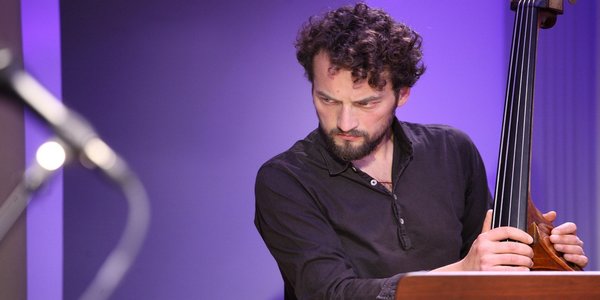Introducing… Olo Walicki
Not a new young act, rather a 40 something Polish jazz genius you probably don't know but should
 Say 'Polish jazz' and along with the soundtracks to classic Roman Polanski films, clued-up sorts might conjure up brilliant ECM (Edition of Contemporary Music) performers like veteran trumpeter Tomasz Stanko and pianist Marcin Wasilewski. Olo Walicki is very different but no less worthy of acclaim. In place of the ECM boys' gorgeously considered, often achingly mournful, efforts, Walicki often ploughs a far more leftfield furrow, utilising quirky instruments, unexpected rhythms and eerie vocals in the ever-changing ensembles joining his double bass.
Say 'Polish jazz' and along with the soundtracks to classic Roman Polanski films, clued-up sorts might conjure up brilliant ECM (Edition of Contemporary Music) performers like veteran trumpeter Tomasz Stanko and pianist Marcin Wasilewski. Olo Walicki is very different but no less worthy of acclaim. In place of the ECM boys' gorgeously considered, often achingly mournful, efforts, Walicki often ploughs a far more leftfield furrow, utilising quirky instruments, unexpected rhythms and eerie vocals in the ever-changing ensembles joining his double bass.Olicki hails from the gritty creative hotbed of Gdansk – his rehearsal room is inside the shipyard where the history-changing Solidarity trade union rebellion began. His debut release in 2000 was Offshore, followed by a host of distinctive efforts including 2004's Metalla Pretiosa featuring Gdansk Philharmonic Brass and the film music album Ewa (2011).
Newbies could do worse than start with a trio of tracks from 2014's Kot, whose use of Polish spoken by a world-weary female vocalist makes you yearn for one of those instantly translating Babel Fish from Douglas Adams' Hitchhikers' Guide To The Universe to slot in your ear.
In Ryszard Krynicki, slow bass thuds underpin the Polish words as it morphs from speech into a husky torch flecked with slowly squawling sax. Luljeta Lleshanaku pt1 finds the spoken voice hovering over drifting harmonium contrasted with spritely bass licks, while pt 2 replaces the lone bass with intricate percussive patter and folky harmonium rhythms that builds to an intense female vocal and wailing clarinet solo.
From 2007's Kaszebe, I'd pluck Ziemia Mojo. Outwardly, it's a traditionally structured seven minutes - but one blending jazz, folk and prog into beguiling, breathless bursts of music interspersed with more haunting female spoken Polish vocals.
Last year's follow-up Kaszebe II meanwhile strikes out into some boldly modern territory that often hardly feels like anything you'd simply label 'jazz'.
=
Sowa starts like something by a darkly cool post-punk band with its menacing electric guitar, drum and keyboard strut mixed with slightly crazed spoken sections. Ditto Slone Przymorze - thudding bass rhythms under a sternly delivered vocal like slightly tormented Krautrock. Kszila, by sharp contrast, sets a sweet high-register male vocal over acoustic guitar in a way that nods to School of Seven Bells or Broadcast.
From Wolicki's fine foray into film music on Ewa Zadzwonimy Do Pana offers one of the moodiest slices of cool round midnight jazz piano you'll ever hear. Usmiech Papuzski stands out too, its initial sweet little piano melody swiftly buried beneath heavy slabs of slow plaintive string and woodwind keening. Thrilling.





 All Content RSS Feed
All Content RSS Feed
Follow Bearded on...